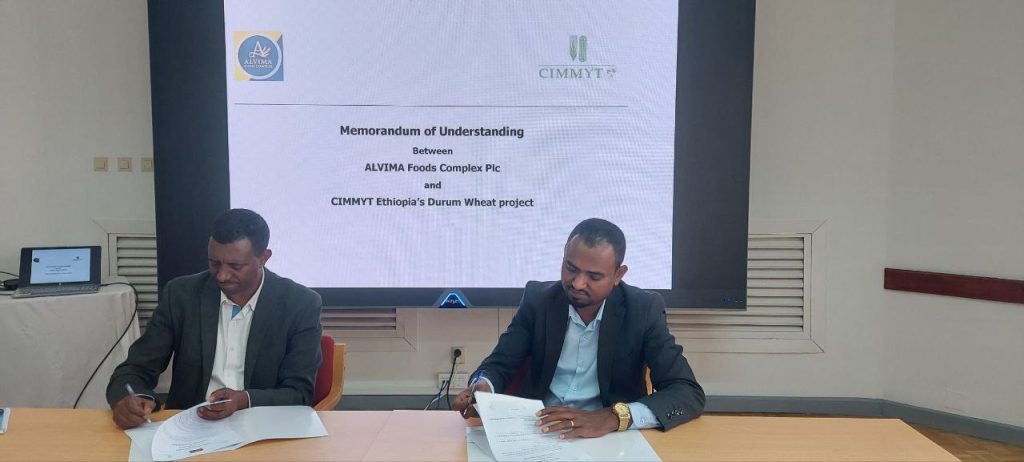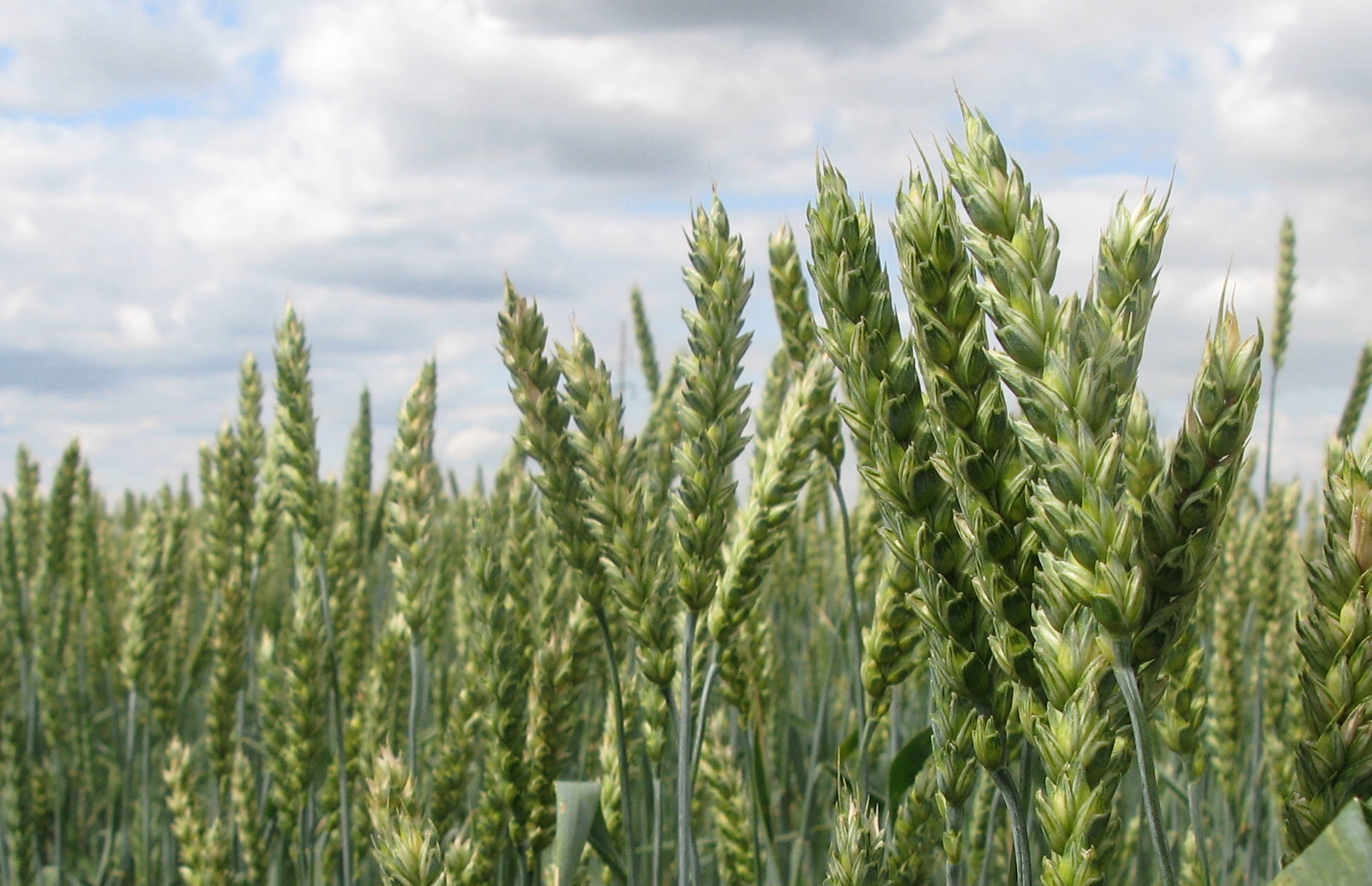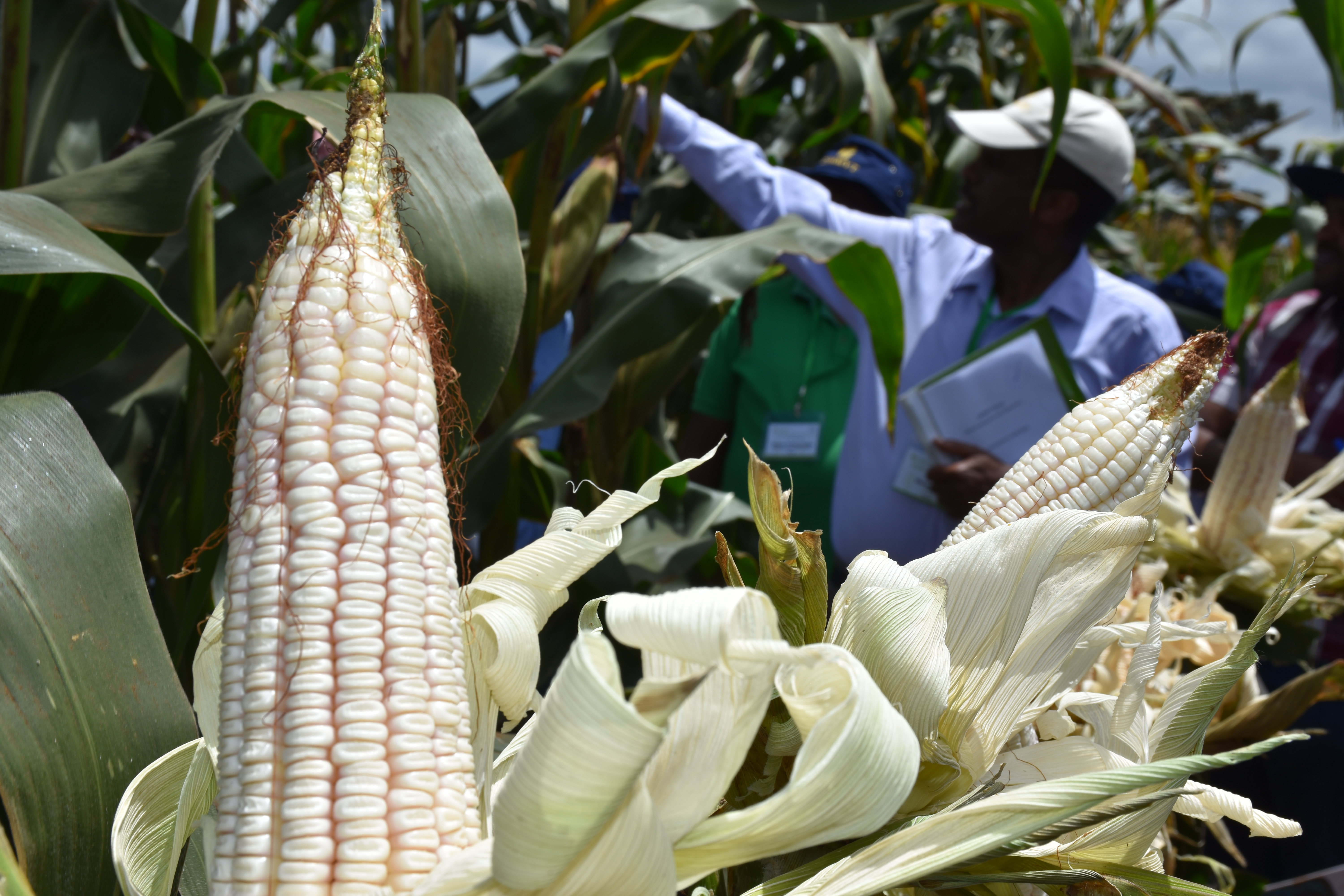CIMMYT Ethiopia signed a memorandum of understanding (MoU) in November 2023 with the Addis Ababa-based private food processing company Alvima Foods Complex Plc, in an effort to encourage durum wheat production among smallholder farmers and create market linkage in selected woredas of Oromia and Amhara regional states.
The MoU, which is part of CIMMYT Ethiopia’s overall durum wheat project aiming to reinvigorate durum wheat production in the country, was signed by Workneh Rikita, Alvima general manager, and Kindie Tesfaye, CIMMYT Ethiopia’s senior scientist.

The MoU aims primarily to create market linkage between farmers and manufacturers, in a context of a sharp decrease of durum wheat production. “Prior to the 1980s, 80% of the wheat produced in Ethiopia was durum, but in 2016 our nationwide research on wheat showed that the durum wheat coverage was 5%, which stands in contrast to the country’s effort to industrialize the economy and substitute import goods with local produce”, said Kindie Tesfaye, CIMMYT durum wheat project leader. “We, as CIMMYT, want to encourage farmers to produce good quality durum wheat in quantity, and teach them about contract farming by creating market linkage with produce receivers like Alvima.”
“Cooperation, not business venture”
Established in 2011, Alvima Foods Complex initially centered its operations around importing and exporting agro-food products. In 2017, the company set up a pasta and flour processing factory and contracted 800 farmers to produce durum wheat. “At first, our objective was to produce premium quality pasta, unlike most processing companies in the country which produce pasta from hard wheat or mixed wheat,” said Workneh Rikita, Alvima’s general manager. In the absence of binding rules, the project failed and Alvima resigned to import durum wheat. “The law on contract farming was constituted recently and the difficulties to access foreign currency (therefore to import goods), which led us to turn our attention back to our initial project”, said Workneh Rikita.
Alvima Foods Complex general manager added that his company didn’t sign the agreement as a business venture but as an advantageous cooperation to learn from. He thanked CIMMYT for agreeing to work with his company and expressed his hopes for its success.
The current durum wheat market in Ethiopia is unpredictable as prices are set by the brokers, which heavily disadvantages the growers. The objective of the memorandum of understanding is to address such market challenges faced by farmers, affording them guaranteed market opportunities at a fair price.
As part of the agreement between Alvima Foods Complex and the durum wheat growers in target districts of the Amhara and Oromia regional states, CIMMYT will leverage on its expertise to help the farmers produce more and in good quality. Alvima will access the produce from farmers’ cooperatives directly, without the intervention of middlemen, to guarantee better incomes to producers. Moreover, CIMMYT is training farmers on use of climate information, accessing climate advisories, video-based production trainings, and crop disease management.
“If the farmers get the premium price for their produce, they will be encouraged to continue producing better wheat,” said Kindie Tesfaye. “We want the cooperation to be sustainable and to create direct links between farmers and local food processors (such as AVLIMA). The MoU will also benefit Ethiopia by decreasing imports of processed food items.”
A multilayered challenge to durum wheat production
Supported by the Bill and Melinda Gates Foundation, CIMMYT and Digital Green (an organization creating digital tools to assist farmers) have been conducting durum wheat improved varieties were insufficiently promoted; the seed was not made adequately accessible to farmers; productivity was perceived by farmers as being low; and market linkage was poor. These multilayered challenges led farmers to prioritize bread wheat varieties, according to Kindie Tesfaye.
In response, CIMMYT structured its support around three main pillars: the organization helps farmers access seeds together with Oromia’s Seed Enterprise, provides farmers with digital advisory services to improve their productivity, and works with the private and public sectors to upgrade market linkages, as with the memorandum of understanding signed with Alvima Foods Complex Plc.


 Nutrition, health and food security
Nutrition, health and food security 